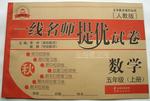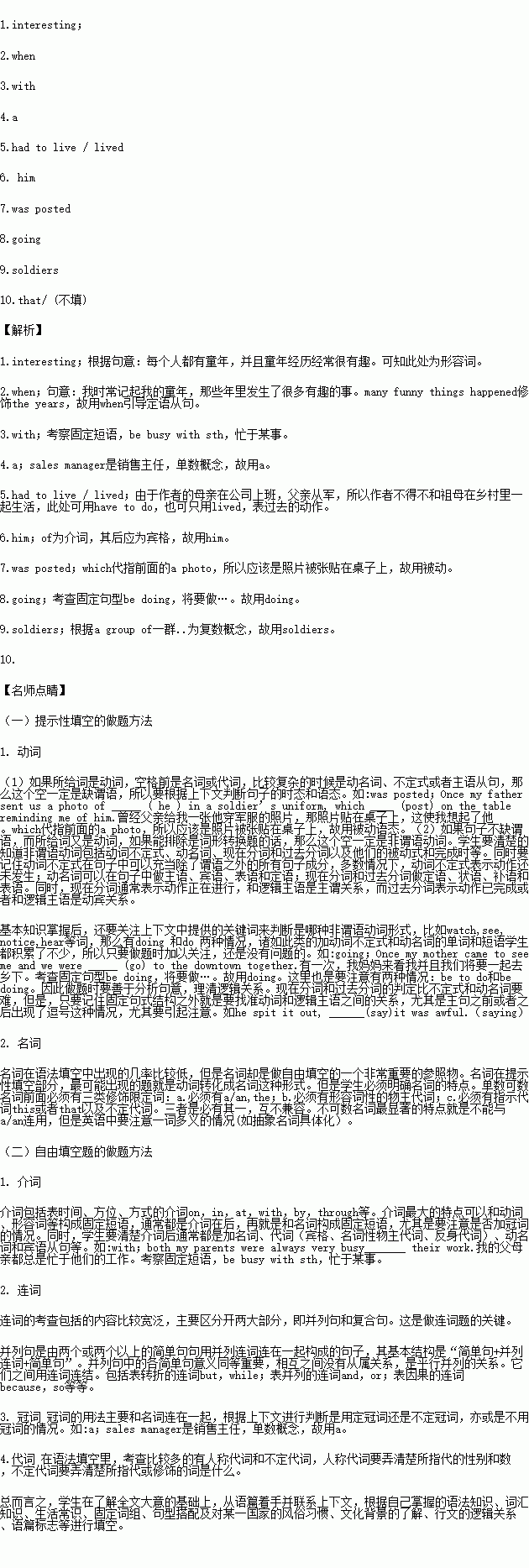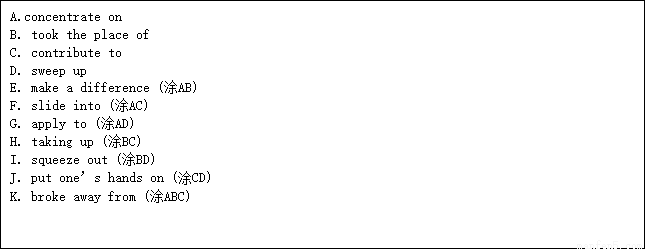题目内容
语法填空
阅读下面材料,在空白处填入适当的内容或括号内单词的正确形式(不多于3个单词)。
Everyone has a childhood and childhood experiences are often very 1. ____ (interest). Children often make us laugh.
I often remember my childhood, the years 2. ______ many funny things happened. When I was a two-year-old child, both my parents were always very busy3.______ their work. My mother worked as4.______ sales manager in a company while my father served in the army. So I 5._____ (live) with my grandma in a village. I was always waiting for my parents at home. Once my father sent us a photo of 6.______ ( he ) in a soldier’s uniform, which 7.____ (post) on the table reminding me of him.
Once my mother came to see me and we were 8._____ (go) to the downtown together. On the way we saw a group of9.____ (soldier). And when I saw them, I became very excited. I shouted in a big voice, “This is my father; that one is my father; and he is my father, too…”
Hearing this, my mother laughed and said10.______ she would remember that moment all her life.
 一线名师提优试卷系列答案
一线名师提优试卷系列答案

